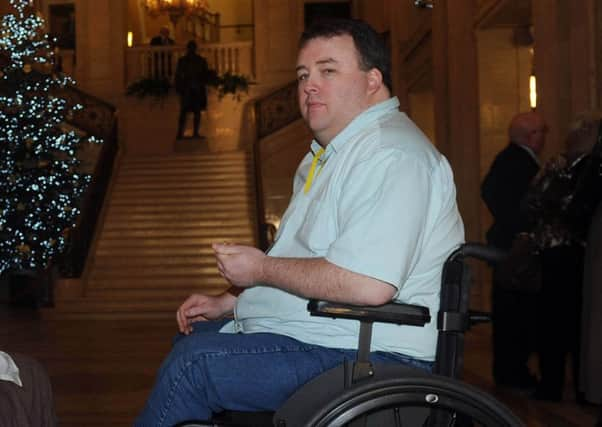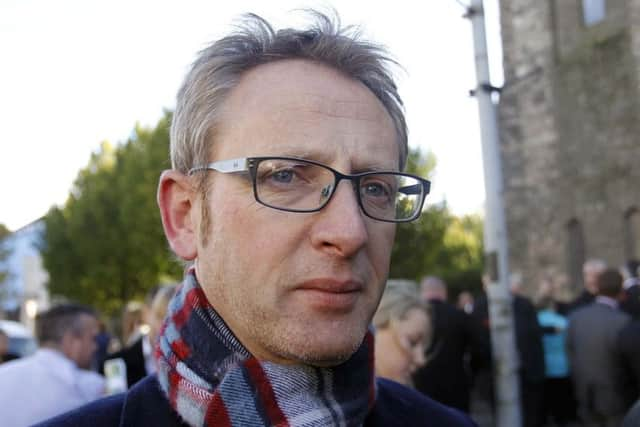Shooting survivor: '˜It's high time politicians gave Troubles pension to victims'


Paul Gallagher was speaking ahead of a renewed push today to obtain a special type of pension scheme for those hurt “through no fault of their own” during the Troubles, and who have not been able to build up their own pension pots by working.
Belfast’s WAVE Trauma Centre is to host a press conference in Chichester Park South in the north of the city this morning (Tuesday) in a bid to heap pressure on Stormont’s political leadership over the issue.
Advertisement
Hide AdAdvertisement
Hide AdThe push comes several weeks after £1.7m was given to Charter NI, a group headed by alleged UDA commander Dee Stitt (who has convictions for firearm possession and armed robbery).


Mr Gallager, one of those lobbying for the pension-type scheme, was a 21-year-old civil servant when gunmen from the UFF/UDA burst into his house in west Belfast.
He said their objective had been to shoot his neighbours, but “they didn’t turn up, so they ended up turning the guns on me instead”.
Today, aged 44, he is paralysed from the waist down.
Asked about the cash given to Charter NI (which aims to help people in east Belfast into jobs), he said: “On a personal level, I’m for groups being helped to try and ease out of conflict”.


Advertisement
Hide AdAdvertisement
Hide AdHe said his problem “is not about the money going to these groups”.
“It’s more about how our politicians have come to an agreement on this, and have been able to go on the media and stand up for that agreement and take the flak they’ve got for that.
“Whereas this pension – which is something so small but really significant for the people it’ll help – still can’t be agreed upon”.
He said victims have watched “combatants” receive money from politicians to give them second chance, and now it was “high time they step up and look after victims”.
Advertisement
Hide AdAdvertisement
Hide AdHe believes the principal block to the scheme is Sinn Fein’s belief that there should be no so-called heirarchy of victims when it comes to the pension; in other words, that paramilitaries should not be excluded from it.
Alan McBride, co-ordinator of the WAVE Trauma Centre’s Injured Group (whose wife Sharon and father-in-law John Frizzell were killed in the IRA’s 1993 Shankill bombing), said: “We have had numerous meetings with all the local political parties from 2011 to the present.
“They are all on record as saying they support the idea of a pension for severely injured. But saying they support it is about as far as it has gone.”
He said his group had “hit a brick wall” when it came to getting the DUP and Sinn Fein to agree on their plan.
Advertisement
Hide AdAdvertisement
Hide AdHe added that victims “do not begrudge money being used to help Northern Ireland transition” from a paramilitary past to a normal modern-day society.
“But they wonder how this money could be found so quickly when they have been campaigning for years with nothing to show for it beyond tea and sympathy,” he added.
Letters were sent on Friday to “MLAs, MPs, church leaders” and more by The Injured Group – a gathering of around a dozen people associated with the WAVE Trauma Centre, which helps those affected by the violence of the Troubles.
The letters urge them to back a renewed campaign for a special pension.
Advertisement
Hide AdAdvertisement
Hide AdThe exact details of the scheme – such as whether it would be a flat rate or a variable rate, depending on a person’s injuries – are not yet clear.
Mr McBride concluded: “If the devolved institutions are, for whatever reason, unable to deliver on this then the Government at Westminster should step in because the plight of the severely injured is as much a legacy of Northern Ireland’s past as anything else and it must be addressed because it would be shameful if they were to be left behind.”